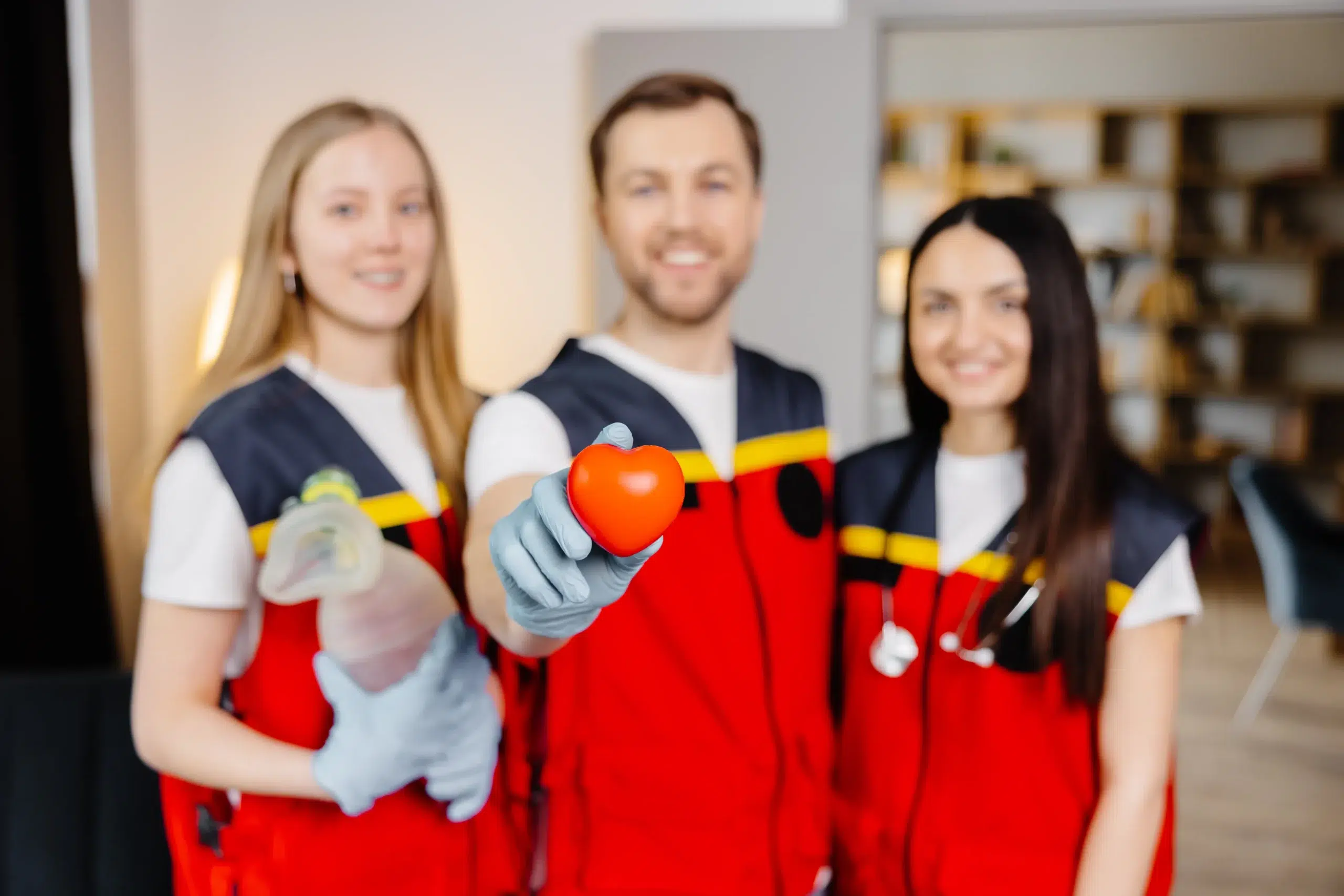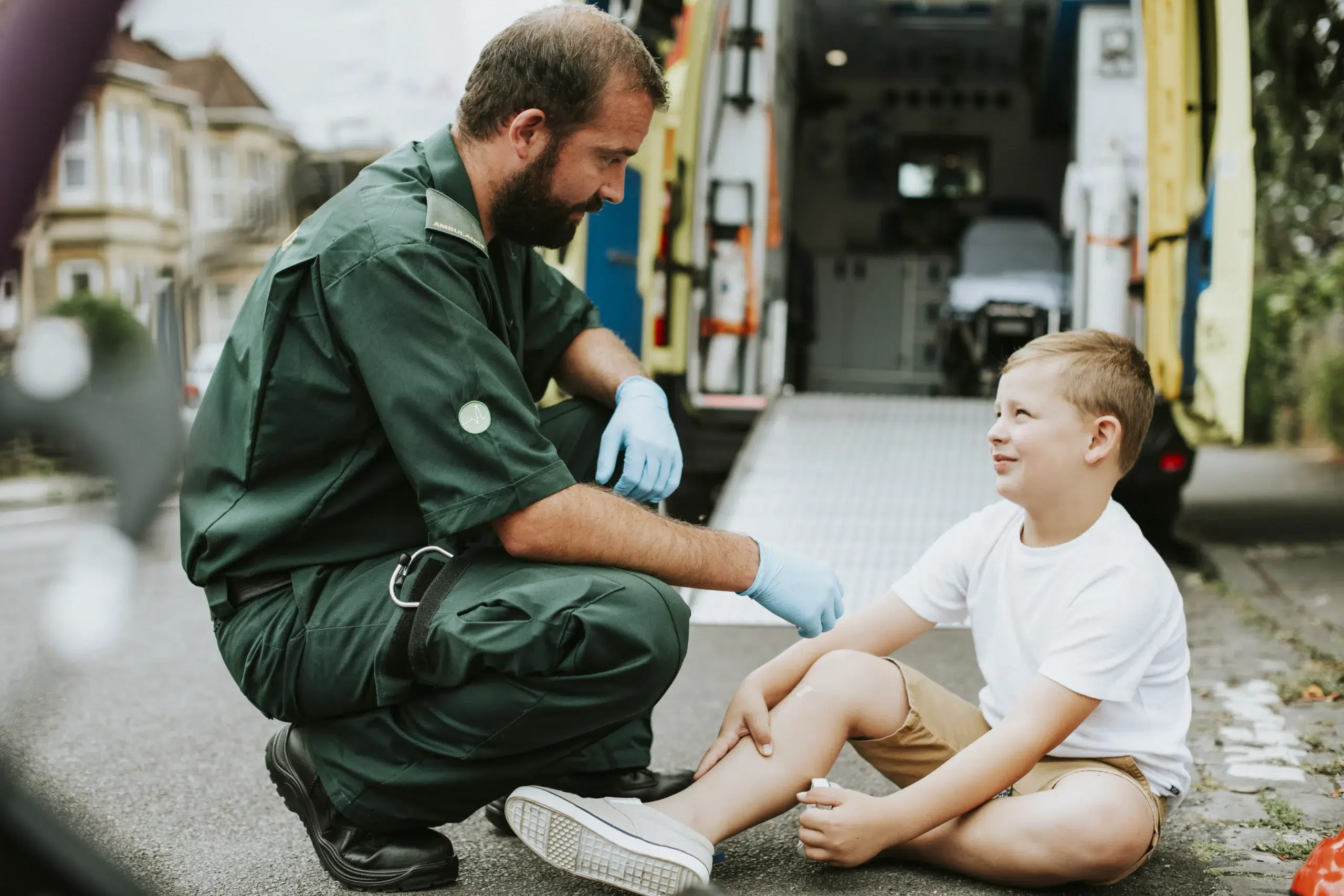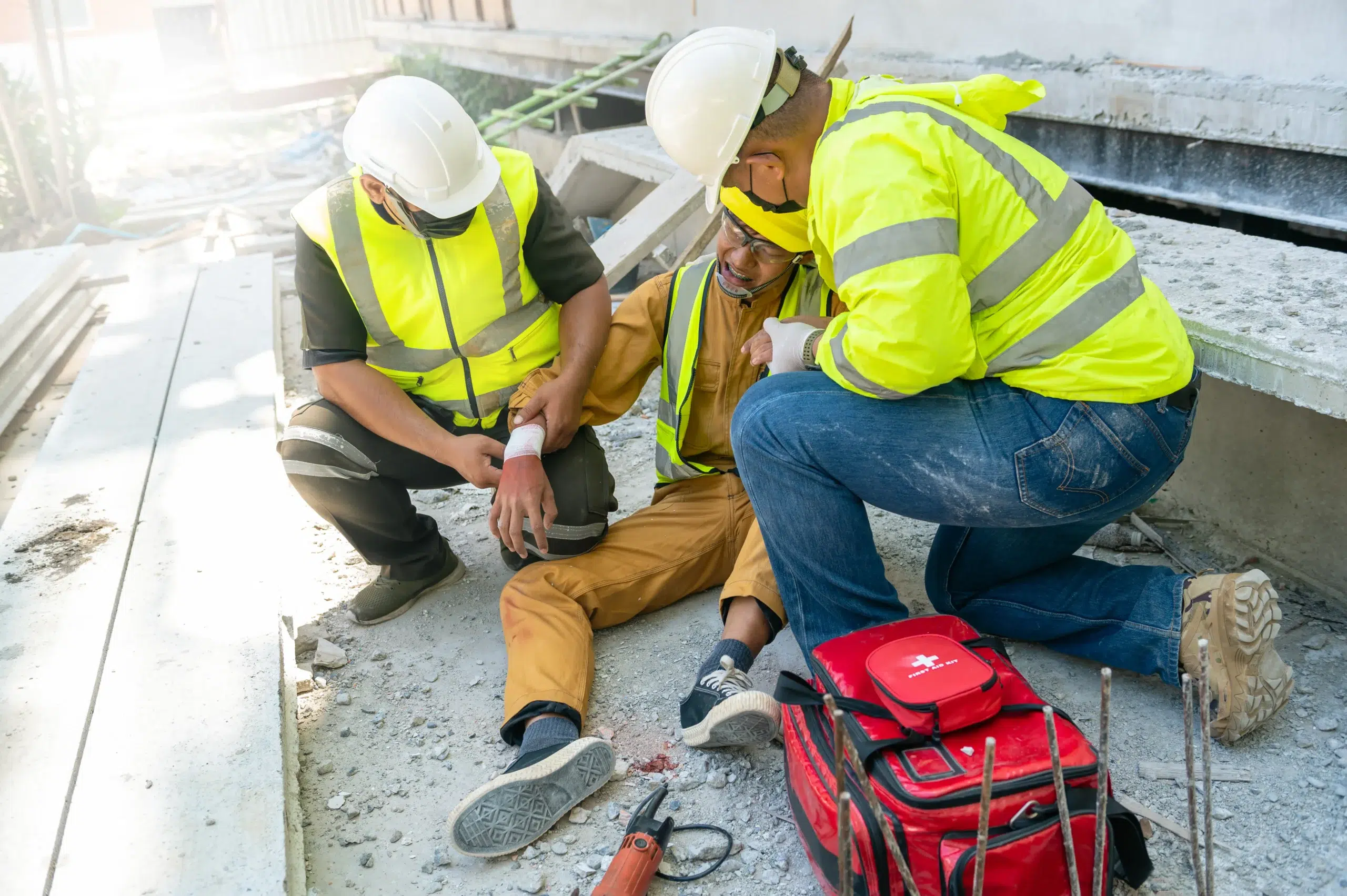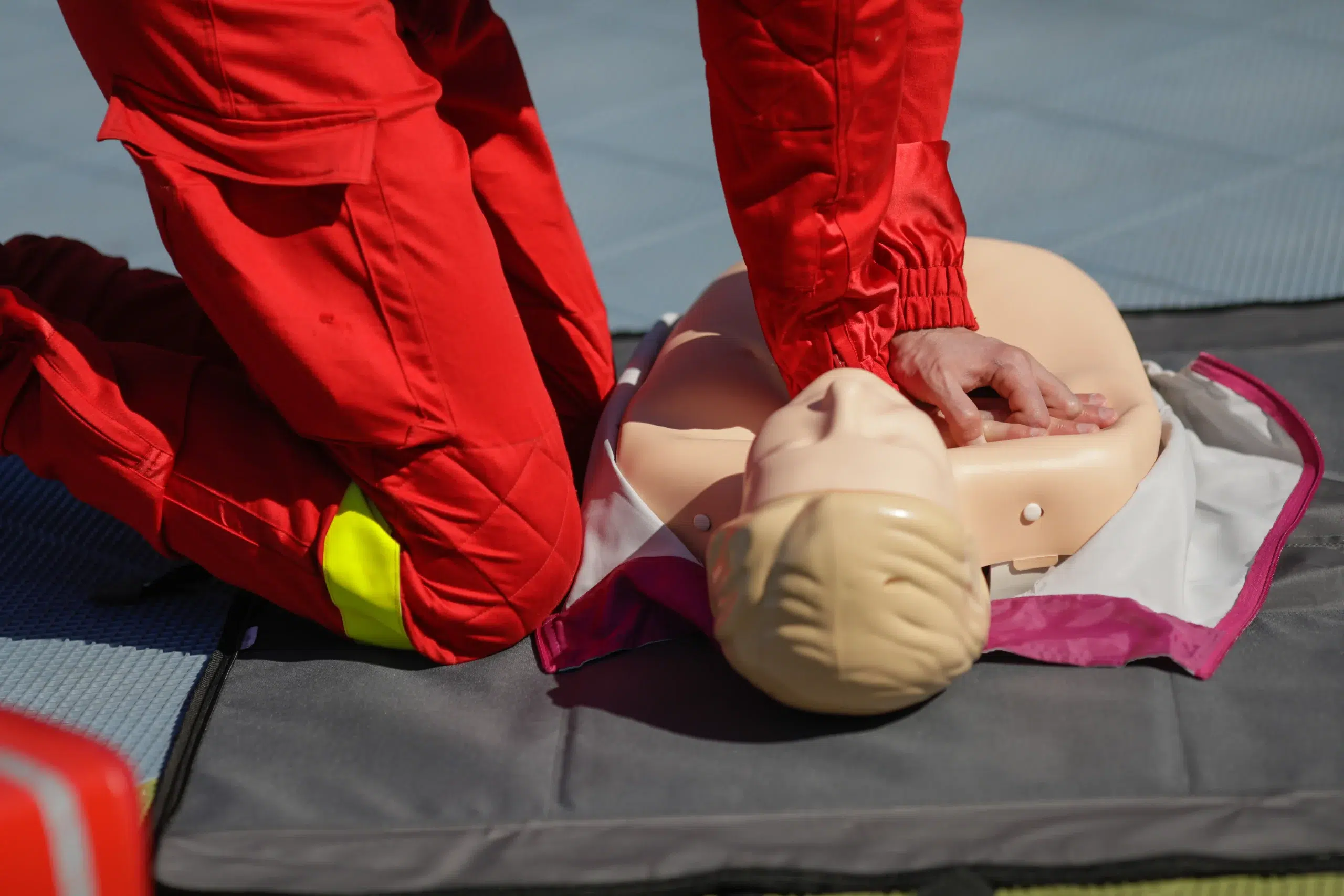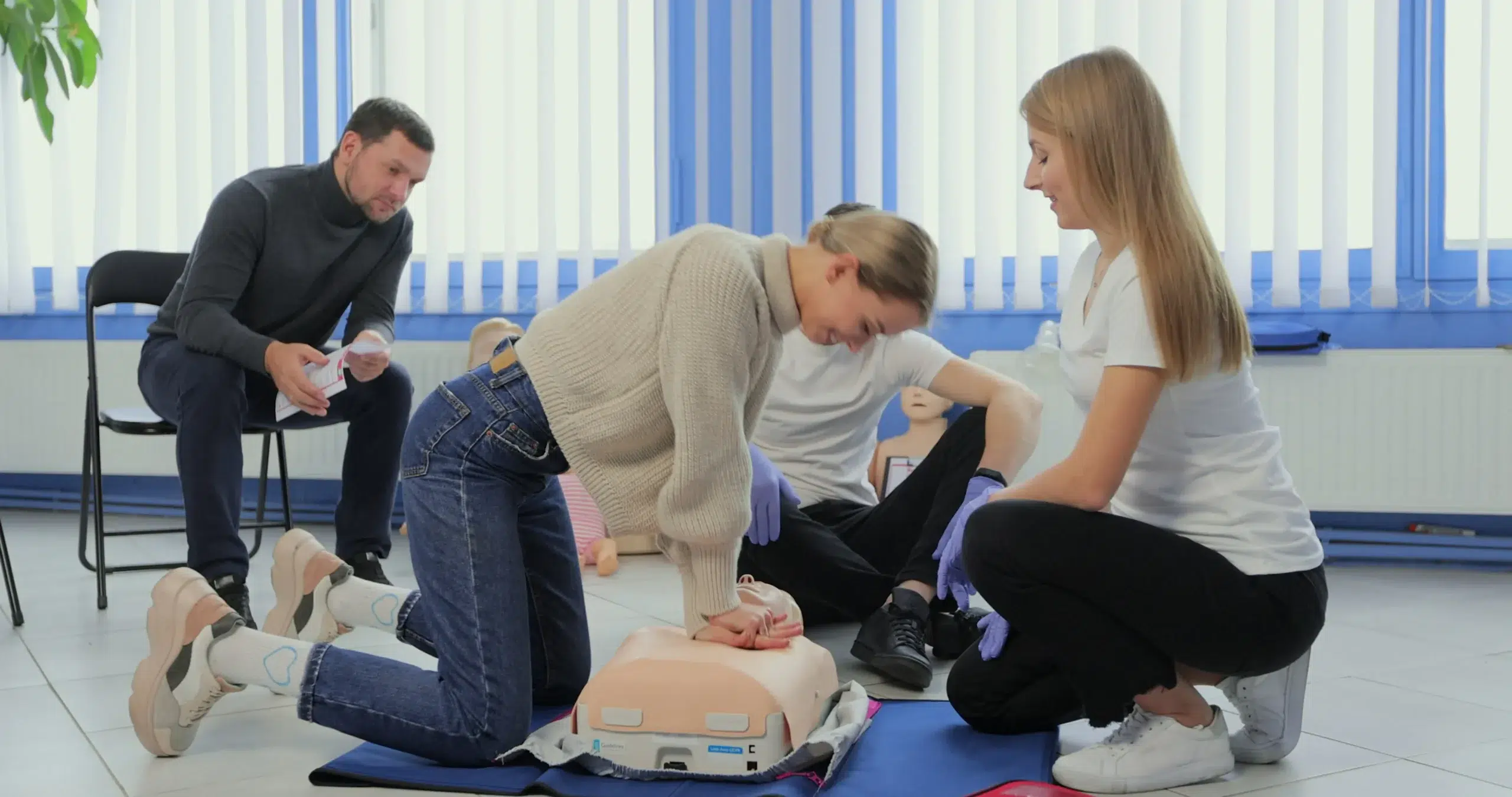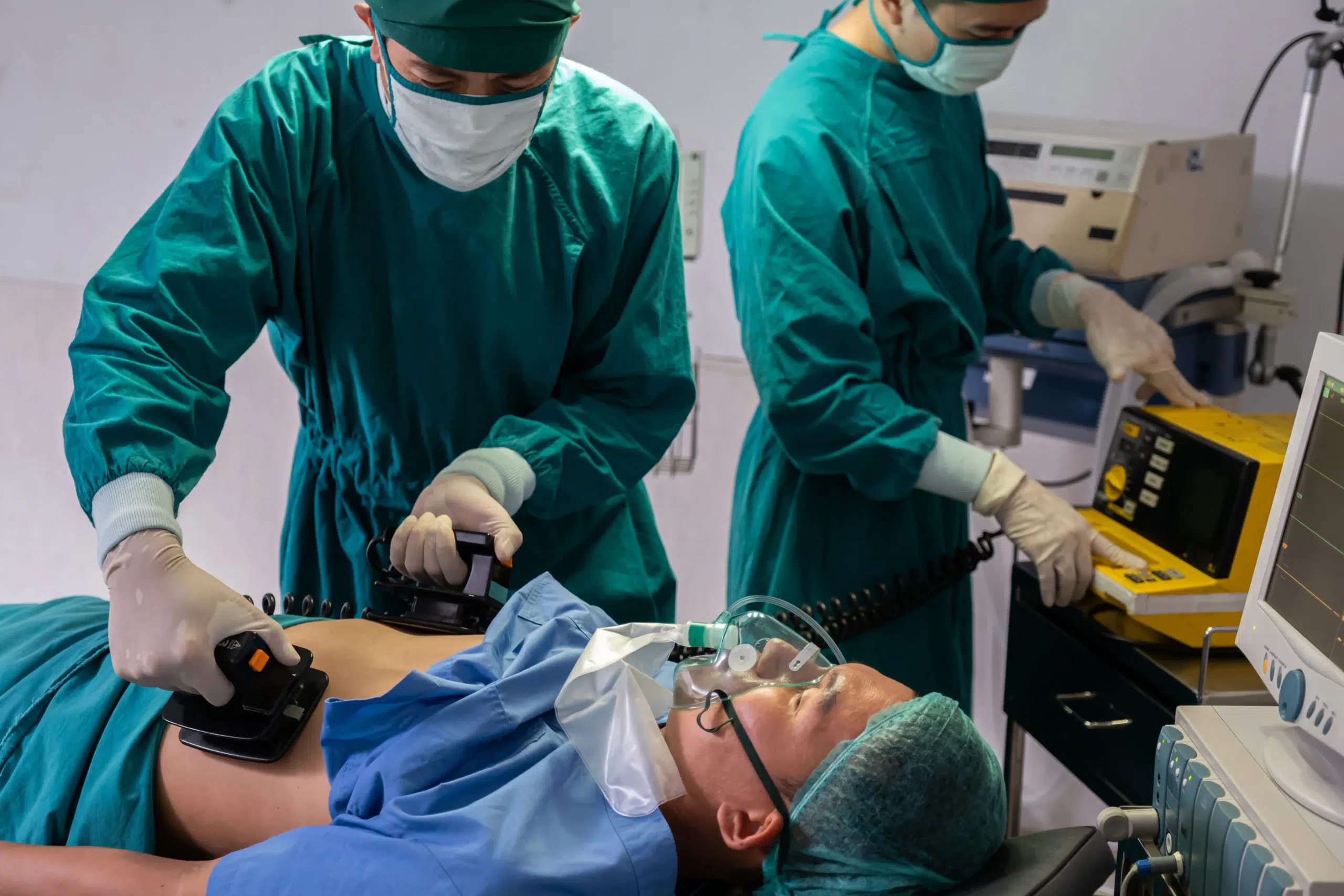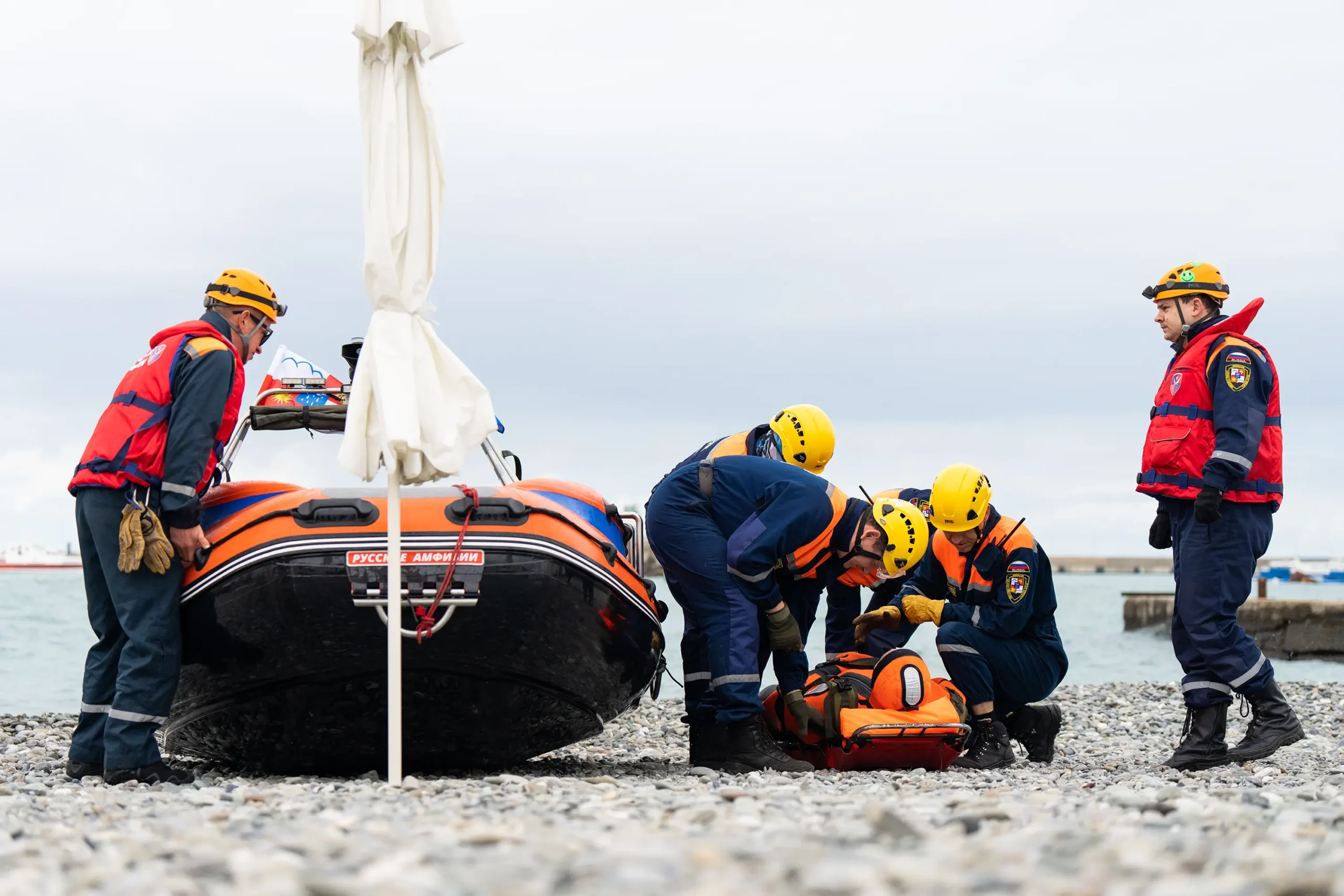Emergencies can happen anytime, anywhere. Would you know what to do? Learning CPR and first-aid in Millbrae is easier than you think, and it could save a life. This comprehensive guide walks you through the process of getting certified, from choosing the right course to understanding the costs and schedules. We’ll explore the various types of CPR and first-aid training available in Millbrae, including specialized courses for healthcare providers and childcare professionals. We’ll also discuss the importance of hands-on practice and how to find reputable training centers in your area. Get ready to feel empowered and prepared to handle any medical emergency.
Key Takeaways
- CPR and first aid empower you to make a difference: These skills enable effective responses to emergencies, potentially saving lives in various situations.
- The right training is accessible and tailored to you: Choose a course that aligns with your personal or professional goals, emphasizing hands-on practice and qualified instructors.
- Certification builds confidence and strengthens your capabilities: Become certified to gain the confidence to act in a crisis and stay up-to-date to maintain your life-saving skills.
What is CPR and First Aid?
What CPR and First Aid Cover
CPR (Cardiopulmonary Resuscitation) and first aid are both emergency, life-saving techniques, but they address different situations. CPR is for someone unconscious, not breathing, or only gasping—what’s known as cardiac arrest. It involves chest compressions and rescue breaths. First aid covers a much broader range of injuries and illnesses, from minor cuts and burns to more serious situations like choking or a sudden allergic reaction. CPR is often included as part of comprehensive first aid training.
Why Life-Saving Skills Matter
Learning CPR and first aid empowers you to respond effectively in a crisis. Immediate CPR can significantly increase survival rates after cardiac arrest. These skills aren’t just for healthcare professionals—these classes are designed to be accessible to everyone. Knowing how to stabilize someone until professional help arrives can make all the difference. Think about it: you’re most likely to use these skills on a family member, friend, or coworker, not a stranger.
Debunking CPR and First Aid Myths
One common misconception about CPR training is the fear of having to perform mouth-to-mouth resuscitation on a stranger. In reality, you’re statistically more likely to perform CPR on someone you know. About 80% of cardiac arrests happen at home. Another myth is that first aid is just common sense. While some aspects may seem intuitive, proper first aid training provides a framework for safe and effective responses, covering everything from assessing a scene to recognizing the signs of a stroke. High-quality training goes beyond the basics, giving you the confidence to act quickly and correctly in various emergencies.
Find CPR and First Aid Courses in Millbrae
Knowing what kind of training you need and where to find it can feel overwhelming. This section breaks down the types of CPR and First Aid courses available in Millbrae and highlights some reputable training centers.
Types of Courses
Get CPR Certified
CPR certification equips you with the skills to respond to cardiac emergencies. It’s a foundational course for anyone interested in first aid and often includes training on how to use an AED (Automated External Defibrillator). Many workplaces and community organizations require CPR certification.
Basic Life Support (BLS)
Basic Life Support (BLS) certification goes a step further than basic CPR. It’s designed for healthcare providers, first responders, and other professionals who need a more comprehensive understanding of life-saving techniques. BLS covers high-quality CPR, team dynamics, and the use of advanced airway management devices. You can learn more about our BLS certification courses.
Advanced Cardiovascular Life Support (ACLS)
Advanced Cardiovascular Life Support (ACLS) is a more advanced course for healthcare professionals who manage patients experiencing cardiac arrest or other cardiovascular emergencies. It builds upon BLS skills and incorporates pharmacology, ECG interpretation, and team-based resuscitation strategies. Explore our ACLS courses for more information.
Pediatric Advanced Life Support (PALS)
Pediatric Advanced Life Support (PALS) focuses on the specific needs of infants and children facing medical emergencies. This course is essential for healthcare providers working in pediatrics, emergency medicine, and intensive care units. Our PALS training provides the specialized knowledge you need.
Get First Aid Certified
First Aid certification teaches you how to manage a wide range of injuries and illnesses, from minor cuts and burns to more serious situations like fractures and allergic reactions. It’s a valuable skill set for anyone to have. Learn more about our First Aid courses.
EMSA Child Care Health & Safety
The EMSA Child Care Health & Safety course prepares childcare providers to handle health and safety issues specific to a childcare setting. This specialized training covers topics like preventing the spread of illness, managing common childhood injuries, and creating a safe environment for children. Find out more about our EMSA-approved training.
Where to Train in Millbrae
Millbrae CPR Classes
We offer a comprehensive range of courses, including CPR, BLS, ACLS, PALS, and First Aid, right here in Millbrae. Our focus is on providing high-quality, convenient training that fits your schedule. We also offer group discounts and a low price guarantee.
Safety Training Seminars
Safety Training Seminars, conveniently located in Millbrae, offers American Heart Association certified courses. They also provide the RQI (Resuscitation Quality Improvement) program for healthcare professionals looking to refine their CPR skills. Visit the Safety Training Seminars website for more information.
Bay Area CPR
Bay Area CPR provides a variety of CPR and First Aid courses in the Millbrae area. They offer flexible scheduling options and cater to different learning styles. You can explore their course offerings on the Bay Area CPR website. Please note that this is a third-party provider and their courses may not be affiliated with Millbrae CPR Classes.
In-Home CPR
If you prefer a more personalized learning experience or have a group that wants to train together, In-Home CPR brings the training to you. They offer flexible scheduling, seven days a week, and their instructors are experienced EMTs and paramedics. Check out In-Home CPR’s website for details. Please note that this is a third-party provider and their courses may not be affiliated with Millbrae CPR Classes.
Choose the Right Course
So, you’re ready to learn CPR and first aid? Great! This section will help you choose the right course for your specific needs.
Determine Your Needs
Before you start searching for a class, take a moment to think about why you want to learn these skills. Are you looking for professional certification or simply wanting to gain valuable life skills?
Professional Certifications
Some professions require CPR and first aid certification. Healthcare providers, for example, need these skills to provide the best possible patient care. If you’re pursuing or advancing a career in healthcare, check specific requirements for certifications like Basic Life Support (BLS), Advanced Cardiovascular Life Support (ACLS), Pediatric Advanced Life Support (PALS), or Neonatal Resuscitation Program (NRP). Even if it’s not mandatory, having these certifications can strengthen your resume.
Build Personal Skills
Even if you don’t need certification for your job, learning CPR and first aid is incredibly valuable. Knowing how to respond to emergencies can give you confidence and peace of mind in any situation. It empowers you to help family, friends, or even strangers during a medical crisis. Think of it as a practical life skill everyone should have. CPR and first aid training can also fulfill requirements for certain volunteer positions or community programs.
Factors to Consider
Once you’ve identified your needs, consider these factors when choosing a course:
Who Should Take This Course? (Healthcare Professionals, Teachers, Parents)
Different courses cater to different audiences. Healthcare professionals, for instance, often need in-depth training tailored to their specific work environment. Teachers, childcare providers, and parents might prioritize courses focused on pediatric CPR and first aid. Consider your specific circumstances and choose a course that aligns with them. Millbrae CPR Classes offers a range of courses designed for various professions and personal needs, including options for group discounts.
Course Content and Curriculum
Look closely at what each course covers. Some focus solely on CPR, while others combine CPR with first aid training. Some programs, like the EMSA Child Care Health & Safety course, cover a broader range of health and safety topics relevant to childcare providers. Make sure the curriculum meets your specific requirements and provides the depth of knowledge you need.
Instructor Expertise
A qualified instructor can make all the difference in your learning experience. Look for courses taught by experienced, certified instructors with a strong background in healthcare. Millbrae CPR Classes is a woman-owned AHA Training Center with a focus on excellent customer service.
Hands-On Practice
CPR and first aid are hands-on skills. Choose a course that emphasizes practical training and provides ample opportunity to practice techniques on mannequins and other training equipment. This will help you build the muscle memory and confidence you need to respond effectively in a real emergency.
In-Person vs. Online Training
Consider your learning style and schedule when deciding between in-person and online training. In-person classes offer the benefit of direct interaction with an instructor and other students. Online or blended learning options provide more flexibility, allowing you to learn at your own pace. Millbrae CPR Classes offers various schedules and formats, including daily classes in over 60 cities, to fit your needs.
Costs and Schedules for CPR and First Aid Courses
CPR and first aid training in Millbrae are more accessible than you might think. With competitive pricing and flexible scheduling, there’s an option for every budget and lifestyle. Let’s break down the costs, discounts, and class formats available.
Typical Millbrae Prices
Millbrae CPR classes are competitively priced, often boasting some of the lowest rates in San Mateo County. This makes training a realistic investment for individuals and groups. Check with specific providers like Millbrae CPR Classes for their latest pricing and any current promotions. Their low price guarantee helps ensure you’re getting the best possible value.
Group Discounts and Promotions
If you’re training with a group, you’re in luck. Many providers offer discounts for group bookings, making it a cost-effective solution for businesses, schools, or community organizations. Reach out to providers directly to discuss group discounts and tailor a training session that meets your specific needs. For instance, you can contact Bay Area CPR to learn more about their group rates and options.
Class Schedules and Formats
Finding a time that works for your busy schedule is easy with the variety of class formats available.
Daily and Weekend Classes
Many training centers offer classes daily, including weekends. This flexibility allows you to choose a time that fits your schedule. Bay Area CPR provides a range of scheduling options to explore.
Evening Classes
If daytime classes aren’t feasible, evening classes are often available seven days a week. This accommodates those who work during the day or have other commitments. Check with providers like In Home CPR for their evening class availability.
Flexible Group Sessions
For larger groups, many providers offer flexible scheduling options. You can often arrange private group sessions at your preferred location and time. In Home CPR specializes in this type of tailored group training.
Course Locations and Accessibility
CPR and first aid courses are conveniently located throughout Millbrae. Millbrae CPR Classes is centrally located, making it easy for residents of Millbrae, San Mateo, and Daly City to access training. You can also find courses at other locations like Safety Training Seminars on El Camino Real.
Benefits of CPR and First Aid Certification
Knowing how to respond in a medical emergency can make all the difference. CPR and First Aid certifications equip you with practical skills and the confidence to act quickly, potentially saving lives. Let’s explore some key advantages of becoming certified.
Improve Survival Rates in Emergencies
CPR can dramatically improve survival rates after cardiac arrest. When someone experiences cardiac arrest, their heart stops pumping blood effectively. Immediate CPR helps circulate oxygenated blood to the brain and other vital organs, buying precious time until professional medical help arrives. Studies show that starting CPR right away can double or triple a person’s chance of survival. Learning CPR truly empowers you to make a difference in life-or-death situations. For more information on CPR and First Aid courses offered by Millbrae CPR Classes, visit our CPR and First Aid Certification page.
Build Confidence in Crises
Imagine encountering a medical emergency—a child choking, a friend injured in a fall, or a stranger collapsing in public. These situations can be incredibly stressful, but with proper CPR and First Aid training, you’ll gain the confidence to respond effectively. You’ll know exactly what steps to take, instead of feeling helpless or unsure. This confidence can transform you from a bystander into a vital first responder. Check out our discount group classes for a supportive and interactive learning environment.
Advance Your Career
A CPR and First Aid certification can significantly enhance your career prospects, especially in fields like healthcare, education, and childcare. Many employers prioritize candidates with these certifications, recognizing their value in creating safer environments. Adding these credentials to your resume demonstrates your commitment to safety and your willingness to take initiative. For those already working in these fields, certifications can open doors to new opportunities and career advancement. Explore our specialized courses like the EMSA Child Care Health & Safety program designed for childcare professionals.
Contribute to Community Safety
Becoming certified in CPR and First Aid allows you to contribute directly to the safety and well-being of your community. You become a valuable resource, equipped to handle emergencies at home, in public spaces, or at your workplace. These skills empower you to assist family, friends, coworkers, and even strangers in times of need. You’ll be prepared to handle a wide range of situations, from minor injuries to life-threatening events, making your community a safer place for everyone. Learn more about our RQI program for healthcare professionals seeking to maintain their resuscitation skills.
Get Certified and Stay Up-to-Date
So, you’re ready to learn CPR? Great! Getting certified is straightforward. We’ll break down the process and how to maintain your skills.
Enroll in a Course
Finding a CPR class that fits your schedule is easier than you think. Millbrae CPR Classes offers daily CPR classes in over 60 cities, making it convenient to find a time and location that works for you. Many organizations, including Safety Training Seminars, offer CPR courses in the Millbrae area, serving nearby communities like South San Francisco, San Bruno, and Burlingame.
Certification Process
Once you complete your chosen course, you’ll receive an official American Heart Association (AHA) certification card. This certification is proof of your training and is typically valid for two years. Make sure you keep it in a safe place!
Renew Your Certification
CPR guidelines and best practices can change, so staying current with your certification is essential. After two years, you’ll need to take a recertification course to renew your CPR skills and knowledge. This ensures you’re always prepared to respond effectively in an emergency.
Continuing Education Options
Even if your certification isn’t due for renewal, there are many ways to keep your skills sharp. Consider taking refresher courses or practicing with friends or family. Proper CPR training gives you the confidence to act quickly and decisively when it matters most, and continued practice reinforces those life-saving CPR skills. This ongoing learning can help you stay comfortable and prepared for any situation.
Related Articles
- CPR Certification in Daly City: Your Guide – Millbrae CPR Classes
- Essential CPR & First-Aid Training for Workplace Safety
- CPR & First Aid in San Mateo: Your Complete Guide – Millbrae CPR Classes
- Debunking Common CPR Myths for Life-Saving Success
- CPR Certification Millbrae: Your Comprehensive Guide – Millbrae CPR Classes
Frequently Asked Questions
What’s the difference between CPR and First Aid? CPR focuses specifically on life-threatening situations where someone’s heart has stopped or they’re not breathing. First aid addresses a much wider range of injuries and illnesses, from minor cuts to more serious conditions like choking. Often, CPR training is included as a core component within a comprehensive first aid course.
How do I choose the right CPR or First Aid class? Think about why you’re taking the class. Do you need it for work, or are you interested in gaining valuable life skills? Consider factors like the course content, the instructor’s experience, and whether you prefer in-person or online learning. Also, check if the course offers the specific certifications you might need for your profession.
How much do CPR and First Aid courses cost in Millbrae? Course costs vary depending on the provider and the type of certification. However, many providers in Millbrae offer competitive pricing and group discounts. It’s always a good idea to contact training centers directly to compare prices and ask about any special offers.
How often do I need to renew my CPR certification? CPR certifications are typically valid for two years. To stay up-to-date with the latest guidelines and maintain your skills, you’ll need to take a recertification course when your current certification expires.
What if I’m nervous about performing CPR in a real emergency? It’s completely normal to feel apprehensive. High-quality training emphasizes hands-on practice, which helps build muscle memory and confidence. Remember, the more you practice, the more prepared and confident you’ll feel if you ever need to use these skills in a real-life situation.
